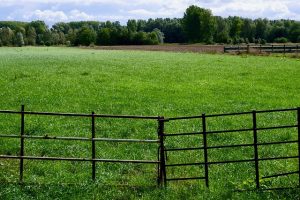Navigating Fence Installation Codes and Regulations in Houston
In Houston, Texas, adhering to local regulations is key for successful fence installation. Homeowners and contractors must obtain a building permit from the city's Permitting Center, presenting detailed plans that comply with the Houston Building Codes, which are designed to handle the region&…….

In Houston, Texas, adhering to local regulations is key for successful fence installation. Homeowners and contractors must obtain a building permit from the city's Permitting Center, presenting detailed plans that comply with the Houston Building Codes, which are designed to handle the region's high humidity and extreme weather. The choice of materials—wood, vinyl, chain link, or iron—must fulfill structural integrity standards while fitting the neighborhood's architectural styles. Fence construction must also respect neighboring properties, avoiding obstruction of views or encroachment on neighbors' rights. For guidance, residents can turn to the City of Houston's Planning and Development Department or hire specialized fencing contractors familiar with local requirements. Compliance with setback rules, material regulations, height restrictions, and property line considerations is mandatory as outlined in the Houston Building and Standards Code. Throughout the installation process, work is overseen by a certified inspector to ensure everything aligns with city standards, leading to a compliant and successfully installed fence in accordance with Houston's ordinances.
navigating the intricacies of property enhancement often includes installing a fence, a task that requires adherence to local building codes. In Houston, where weather patterns and urban development dictate specific construction guidelines, understanding fence installation regulations is paramount. This article delves into the essential steps to ensure compliance with Houston’s stringent yet protective standards for fence installation, safeguarding both your investment and community harmony. With a focus on ‘fence installation Houston,’ we guide you through the process of building a compliant barrier that stands strong against the elements and regulatory requirements.
- Understanding Fence Installation Regulations in Houston
- Steps to Ensure Compliance with Local Building Codes for Fences in Houston
Understanding Fence Installation Regulations in Houston

When planning to install a fence in Houston, Texas, it’s imperative to familiarize oneself with the local ordinances that govern such projects. The City of Houston has specific regulations that dictate the permissible height, material, and setback distances for fences. These regulations are designed to maintain community aesthetics and ensure safety and privacy standards are met. Homeowners or contractors engaged in fence installation in Houston must first obtain the necessary building permits from the city’s Permitting Center. This process includes submitting detailed plans of the proposed fence, which must adhere to the stipulated guidelines.
The Houston Building Codes require that fences be constructed with durable materials that can withstand the local climate, which is characterized by high humidity and occasional severe weather. The choice of material, whether it’s wood, vinyl, chain link, or iron, must comply with both the structural integrity requirements and the neighborhood’s architectural style. Additionally, homeowners must consider the impact their fence will have on neighboring properties. It’s crucial to ensure that the fence does not obstruct neighbors’ views or rights without proper consent. Understanding these regulations is facilitated by consulting the City of Houston’s Planning and Development Department or seeking guidance from professional fencing contractors who are well-versed in Houston fence installation requirements. By adhering to these local regulations, homeowners can ensure their fence installation project in Houston will be completed smoothly, safely, and in compliance with city standards.
Steps to Ensure Compliance with Local Building Codes for Fences in Houston

When undertaking fence installation in Houston, it is imperative to adhere strictly to the local building codes and regulations. These codes are designed to ensure safety, privacy, and harmony within the community. The first step in ensuring compliance is to consult the City of Houston’s Building and Standards Code, which outlines specific guidelines for fence installations. Property owners must verify the setback requirements, permissible materials, height restrictions, and property line considerations. For instance, chain link fences should not exceed six feet in height if they are within a residential district, as per Houston’s regulations.
Homeowners or contractors embarking on fence installation projects in Houston must obtain the necessary building permits. This process involves submitting detailed plans and specifications to the local building authority for review. The permit application should include information about the proposed fence’s type, height, location, and how it will impact adjacent properties. Once approved, the construction can proceed under the watchful eye of a certified inspector who will ensure that all aspects of the installation comply with the established codes. By following these steps and remaining informed about Houston’s specific regulations, homeowners can ensure their fence installation projects are both compliant and successful.
When embarking on a fence installation project in Houston, adherence to local building codes is paramount. This article has outlined the key considerations and steps necessary to ensure compliance, thereby safeguarding your investment and maintaining neighborhood harmony. By understanding Houston’s specific regulations and following a structured approach, residents can confidently navigate fence installation requirements without facing potential legal issues or the need for costly adjustments post-construction. For those looking to install a fence in Houston, the guidance provided here will serve as an essential resource to ensure that their project is completed in line with all relevant local regulations.







